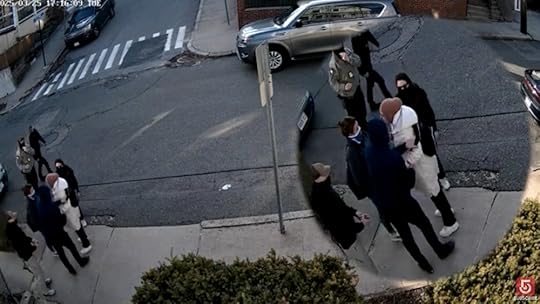More Than a Face
 Tufts University student Rumeysa Ozturk being arrested by what appear to be masked, plainclothes United States Department of Homeland Security (DHS) officers, Somerville, MA, 25 March 2025.
Tufts University student Rumeysa Ozturk being arrested by what appear to be masked, plainclothes United States Department of Homeland Security (DHS) officers, Somerville, MA, 25 March 2025.A mask tells us more than a face.
— Oscar Wilde
The mask continues to reveal the nature of US culture and politics in the 2020s. The right first called for no masks, dismissing them as an affront to individual rights during the Covid-19 pandemic. Then, various efforts were made to prevent anti-Gaza War protesters on university campuses from concealing their faces. Now, the mask is on the other face. Police officers, National Guard troops, ICE and DHS plainclothes officers, and federal immigration officers (we think, but who knows since we cannot see their faces) are the ones masking up to arrest, detain, and attempt to deport persons in the United States.
Who gets to shield their face? Who gets to see and who must be seen? To be able to put a face to a name remains at stake. What it means to be a person, a faceless fist of state power, or a protester as part of the amorphous masses—the mask conceals, but it also reveals. Struggles over the gaze and the visage remain as crucial to these battles as weapons of other sorts.



